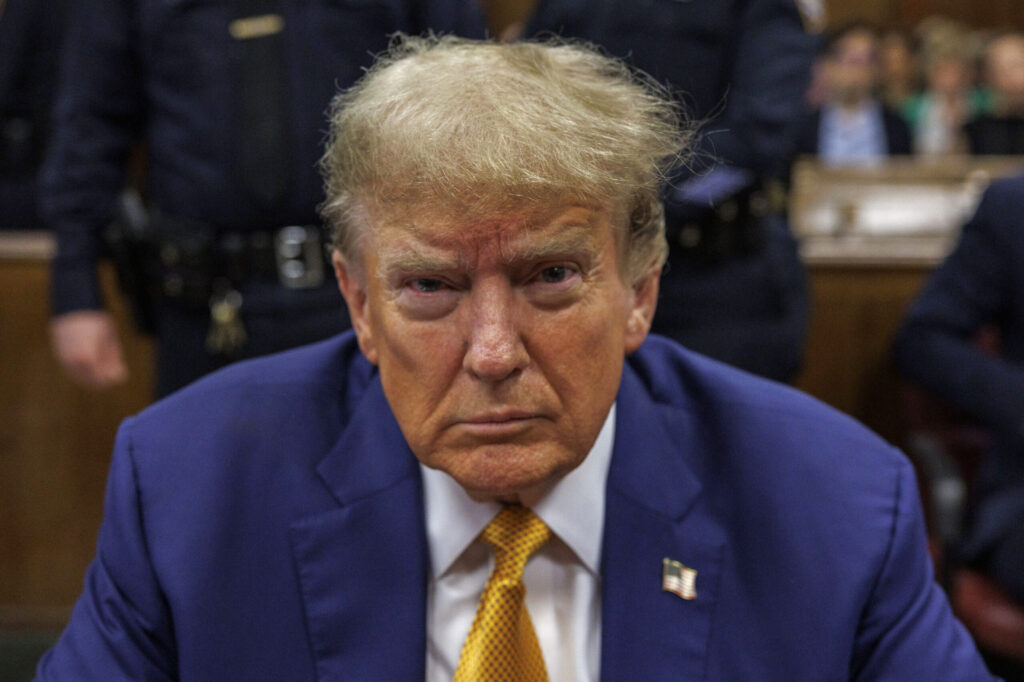
Ex-President Trump Found Guilty on All Charges in Hush Money Trial
In a historic and unprecedented event, former US President Donald Trump has become the first ex-president to be convicted of a crime. A New York jury found Trump guilty on all 34 counts of falsifying business records. These charges stem from his efforts to hide a payment meant to silence porn star Stormy Daniels before the 2016 election.
Despite the verdict, Trump is not barred from continuing his campaign to return to the White House. Even if he were to be sentenced to prison, he could still run for president. After the verdict, Trump remained defiant, proclaiming his innocence and criticizing the trial as “rigged” and a “disgrace.”
President Joe Biden’s campaign responded to the conviction, stating that it demonstrated that “no one is above the law” and highlighting the threat Trump poses to democracy.
The sentencing for Trump is scheduled for July 11, just days before the Republican National Convention, where he is expected to receive the party’s nomination. If sentenced, he could face up to four years in prison for each count, but it is more likely he will receive probation.
The jury, composed of 12 members, deliberated for over 11 hours before reaching their unanimous decision. Judge Juan Merchan thanked the jurors for their service, acknowledging the difficult and stressful nature of the case. To protect their privacy, the jurors’ identities were kept secret throughout the trial, a measure typically reserved for cases involving dangerous defendants.
This conviction adds to Trump’s legal troubles. He also faces federal and state charges related to attempts to overturn the 2020 election results and for mishandling classified documents after leaving office. These trials, concerning more serious allegations, are not expected to start before the next presidential election.
The charges in this case relate to a $130,000 payment made to Stormy Daniels to keep her from revealing an alleged affair with Trump. This payment was made just before the 2016 election, potentially damaging his campaign against Hillary Clinton. Trump’s lawyer at the time, Michael Cohen, testified that Trump reimbursed him for the hush money, leading to the falsification of business records.
Prosecutors argued that the payment and the subsequent cover-up were part of a larger scheme to mislead voters about Trump’s behavior. Cohen, who turned against Trump, called the verdict “an important day for accountability and the rule of law.”
Trump has consistently denied any sexual encounter with Daniels and did not testify in his defense. His lawyers maintained that the payments were legal.
The trial has undoubtedly been a distraction for Trump as he campaigns for the presidency. Nonetheless, he has used the media attention to his advantage, even issuing a fundraising appeal shortly after the verdict.
Political analysts suggest that while the conviction might not drastically change voter opinions, it could influence tight races in key swing states. Trump, known for his brash real estate ventures and his unexpected rise to the presidency in 2016, is likely to face probation as a first-time offender. An appeal is expected but could take months to resolve.
If Trump were to win the presidency again, he would not be able to pardon himself since the case was brought by the state of New York, not the federal government. Only the governor of New York could grant a pardon in this instance.
This conviction marks a significant moment in US history, underscoring that even former presidents are subject to the rule of law.
